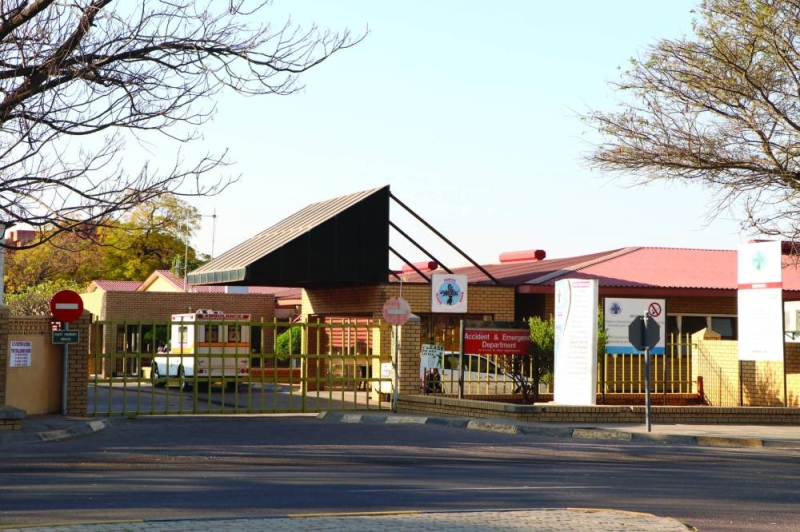Doctors blame MoH for lack of blood deaths
Nnasaretha Kgamanyane | Monday March 24, 2025 14:32


According to a press release from Botswana Doctor’s Union (BDU), on March 15, 2025, at 4pm a young woman tragically passed away at Princess Marina Hospital (PMH) due to haemorrhagic shock resulting from rupture ectopic pregnancy. The union further explained that the sad reality was that there was no blood available for transfusion at the time. “This is not an isolated incident as many more patients across the country are suffering due to anaemia, and countless others continue to lose their lives because of severe blood shortage affecting the nation. BDU has noted with grave concern that the past four weeks, there has been severe shortage of blood and blood products in public hospitals,” it stated.
It further explained that the ongoing crisis led to numerous deaths and severe complications for patients in desperate need of blood transfusions. BDU further expressed disappointment over the poor administrative oversight at MoH regarding that critical issue. It also stated that while many Batswana generously donate blood, thousands of blood units remained untested and many discarded due to inadequate cold storage facilities. The BDU also pointed out that blood shortage that recurred sadly claimed the lives of many people each year. It highlighted that the root cause of that blood shortage was resulted by mismanagement and poor decision making within MoH. Furthermore, the press release noted that there was unavailability of test regiments. “Although the minimum required tests for blood-borne viruses such as HIV, syphilis, hepatitis B and C are conducted, there are significant gaps in testing. We are unable to procure enough test kits to properly screen the estimated 45 000 blood units expected to be processed annually by the National Blood Transfusion Services (NBTS),” it said. Despite the country’s financial and economic challenges, BDU added that MoH resorted to crisis management practices such as outsourcing blood transfusion to private hospitals and sending samples to South Africa for testing, which were unsustainable and inadequate solutions. BDU also stated that year after year, doctors were left to manage that crisis with no long-term solutions in sight.
Moreover, it added that despite receiving blood donations, none of the current staff at NBTS would recommend transfusing blood that has been processed under those conditions to their loved ones. It added that that spoke to the inadequate testing protocols in place, which did not include important screenings for viruses such as herpes simplex virus, Epstein Barr virus, and HTLV among others putting the health of Batswana at serious risk. “As BDU, we apologise to the nation for not speaking out sooner on this pressing issue. We also apologise to our fellow healthcare workers who have unfairly become scapegoats for a crisis they did not create. We stand united and call for justice and support for every individual and family in need of blood and blood products,” it ended.
Responding to this, the chief public relations officer (MoH) Christopher Nyanga said the shortage of blood in the country was due to inadequate supply owing to the few number of people donating blood annually. he added that as a country, they needed about 45,000 pints of blood annually but always received less than 30,000 pints every year.
'Although the Ministry indeed has challenges of cold rooms that are not enough, all blood that is donated is appropriately tested and used as intended. It was only last week that the Ministry was not able to transfuse and test blood due to a gap in its reagents availability. A stop-gap measure of referring those needing blood transfusion to the private sector and using our sister organization in South Africa to test blood was adopted,' he said.
Furthermore, Nyanga pointed out that as of yesterday they resumed transfusing blood in their facilities. He added that they still test blood in the said sister organisation in SA but they anticipate to resume their normal testing by the end of this month. In addition to the general shortage of funds, he said there had been a delay in their procurement processes and the ministry had decided to prioritise that.
